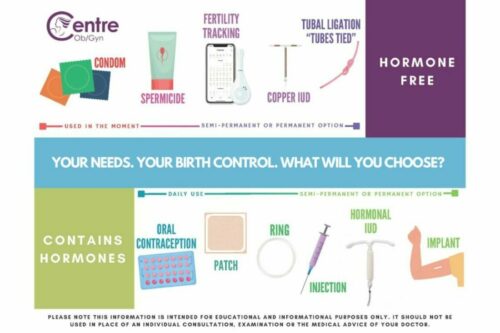 Contraception and family planning plays a crucial role in maintaining health and wellbeing throughout the various stages of life. Whether you feel you are past the age of wanting children, are not yet prepared to start a family, or have decided to remain childfree. The freedom to choose if and when to have children is a personal one, as is the selection of the contraceptive method that best aligns with your lifestyle and needs.
Contraception and family planning plays a crucial role in maintaining health and wellbeing throughout the various stages of life. Whether you feel you are past the age of wanting children, are not yet prepared to start a family, or have decided to remain childfree. The freedom to choose if and when to have children is a personal one, as is the selection of the contraceptive method that best aligns with your lifestyle and needs.
Birth Control Methods: Tailoring to Your Lifestyle
When it comes to birth control, there’s no one-size-fits-all solution. Your lifestyle, health, convenience, and future family planning goals play significant roles in choosing the right method.
- Birth Control Pills: Birth control pills are among the most popular contraceptives. They are convenient and, when taken correctly, extremely effective. There are various types, including combined estrogen-progesterone pills and progesterone-only pills, which can also help in managing menstrual symptoms.
- Intrauterine Devices (IUDs): IUDs offer long-term contraception, ranging from 3 to 10 years, depending on the type. They are divided into two categories: hormonal and non-hormonal (copper-based). Hormonal IUDs release a small amount of progestin, while copper IUDs prevent pregnancy by inhibiting sperm mobility.
- Birth Control Implants (Nexplanon): The birth control implant is a tiny rod inserted under the skin of your non-dominant arm. It releases hormones that prevent ovulation and is effective for up to three years.
- The Patch: The birth control patch sticks to the skin and releases hormones to prevent pregnancy. It’s a weekly method—each patch lasts for seven days, and on the fourth week, no patch is worn, allowing for a menstrual period.
- Vaginal Ring: The vaginal ring is a small, flexible ring inserted into the vagina. It releases hormones for three weeks to prevent ovulation. After three weeks, it’s removed for a week to allow for a menstrual period before a new ring is inserted.
- Depo Shot: The Depo-Provera shot is a hormonal injection given every three months. It’s an effective, low-maintenance option that works by preventing ovulation and thickening cervical mucus to keep sperm from reaching an egg.
Each of these methods has its nuances, and discussing your medical history and preferences with your OB/GYN is crucial in making the right choice.
Permanent Sterilization: When You’re Absolutely Sure
For those who are certain they do not want to conceive in the future, tubal ligation is a permanent form of birth control. Commonly referred to as having your “tubes tied,” it involves closing off the fallopian tubes, which prevents eggs from reaching the uterus. This procedure is highly effective and means you won’t need to think about contraception again. However, it’s a significant decision that should be made with careful consideration and discussion with your healthcare provider.
Fertility Awareness: Understanding Your Cycle
Fertility awareness methods require you to monitor your menstrual cycle to determine when you are most likely to conceive. By keeping track of your body’s natural fertility signals, such as basal body temperature and cervical mucus, you can pinpoint ovulation. This method requires discipline and education but can be an empowering way to understand your body better.
Condoms: Prevent STIs
Condoms serve as a barrier method of contraception, offering the dual benefits of preventing pregnancy and protecting against sexually transmitted infections (STIs). They are accessible, non-invasive, and can be used in conjunction with other forms of birth control for added protection.
Emergency Contraception: The Backup Plan
Life is unpredictable, and emergency contraception is there for those times when your primary birth control method fails or isn’t used. Available in pill form or as an IUD, emergency contraception is most effective when used as soon as possible after unprotected sex.
Making the Choice That’s Right for You
Choosing the right contraception and family planning method is a personal journey, and it’s important to have a healthcare partner who listens and supports you through the process. At Centre OB/GYN in Raleigh, NC, we’re here to provide the information and care you need to feel confident in your family planning choices.
If you have any questions or wish to discuss your contraception options in detail, we invite you to schedule an appointment with us. Your health and peace of mind are our top priorities, and we’re committed to guiding you through each step of your family planning journey.
Further Reading:
Mayo Clinic: https://www.mayoclinic.org/healthy-lifestyle/birth-control/in-depth/birth-control-options/art-20045571
Go back
